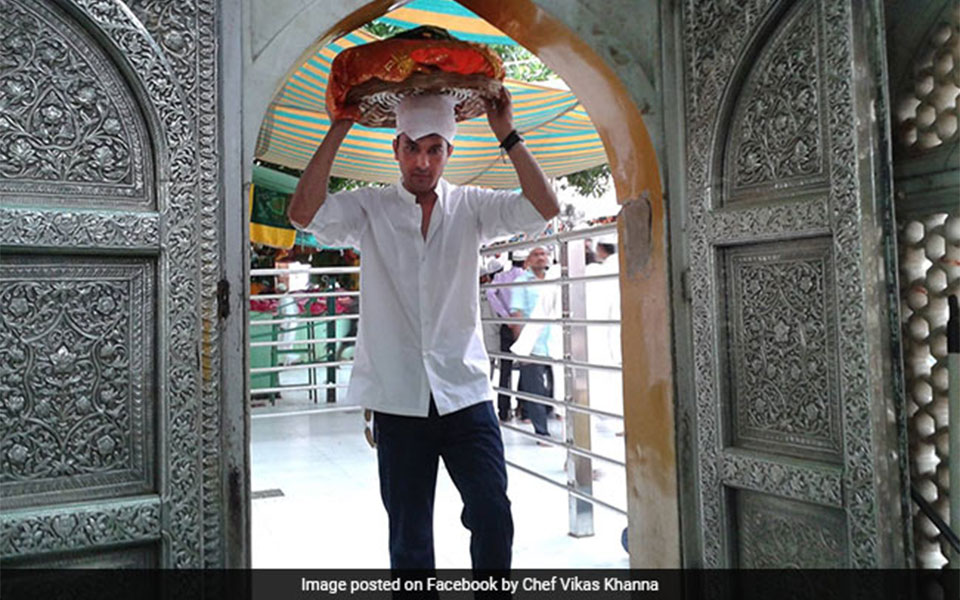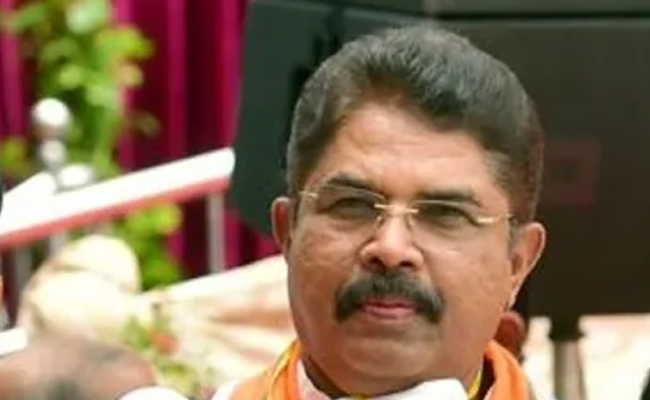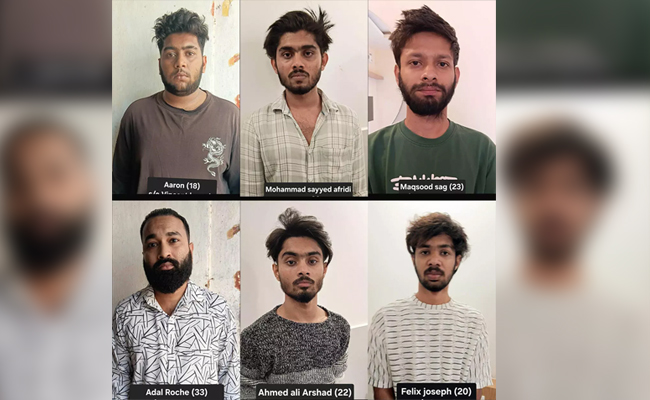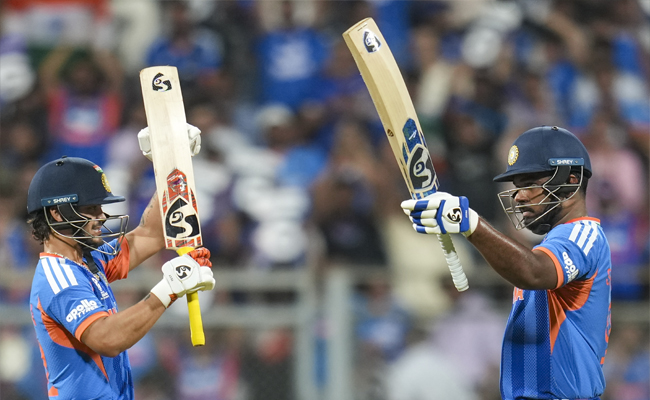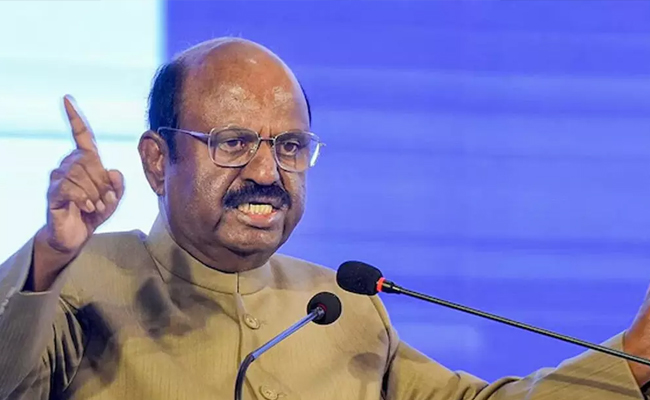New Delhi: Every year since 1992, Chef Vikas Khanna has fasted for a day during the holy month of Ramadan to honour a Muslim family he credits with saving his life during the 1992 riots in Mumbai. Now, 26 years later, the New York-based celebrity chef says he's happy to have finally found the family he lost touch with.
On Monday, he tweeted he was happy to have tracked down the family and would break his Ramadan fast with them. Last night, presumably after meeting and sharing an Iftar meal with the Mumbai family, Chef Khanna tweeted: "Heartwarming evening. All Heart. Tears. Pain. Pride. Courage. Humanity. Gratitude."
Chef Khanna described what unfolded nearly three decades ago in a Facebook post in 2015: "I was training in the kitchen of SeaRock Sheraton, Mumbai in 1992 December when riots broke and whole city was under fire. We were stuck in the hotel for days."
Elaborating in an interview to a TV channel last year, a clip of which went viral, Chef Khanna said because of curfews in place during the riots, no staff were able to leave or enter the hotel.
One day, he heard a rumour that the situation in Mumbai's Ghatkopar was getting out of hand with many hurt as a result of the riots. Worried about the safety of his brother who lived there, the chef said he immediately rushed to Ghatkopar - despite not knowing his way around the city.
On his way, a Muslim family warned him against rioters and took him in, he said in the interview.
Soon, a mob descended upon their home and demanded to know who he was.
"He's our son," the family told the mob, the chef recounted, and the group eventually left.
For nearly two days, Chef Khanna said he slept on their floor. "I don't know who they were or where I was during that time," Chef Khanna recalled. The family sent a relative to find out about Chef Khanna's brother - who, fortunately, was found to be safe.
"Since that year, I fast for one day during the Holy Month to thank them and keep them in my prayers," Chef Khanna wrote on Facebook.
On June 11, the chef tweeted that he managed to track down the Good Samaritans. Nearly eighteen hours ago, he tweeted: "Heartwarming evening... Thank you everyone to connect me with my souls."
The incredible reunion has struck a chord with many on social media.
"Your life story is absolutely amazing... You are truly destiny's child," wrote one person. "This is real India," wrote another.
Courtesy: NDTV
Let the Truth be known. If you read VB and like VB, please be a VB Supporter and Help us deliver the Truth to one and all.
Bengaluru (PTI): Leader of Opposition in the Karnataka Assembly R Ashoka on Thursday took a dig at CM Siddaramaiah ahead of the state Budget presentation, claiming that the government is expected to borrow Rs 1.15 lakh crore and is likely to impose fresh taxes on the people.
He said the Budget would have nothing new, adding that its highlights would be criticism of Prime Minister Narendra Modi and repeated mentions of the five guarantee schemes ('Shakti', 'Gruha Lakshmi', 'Gruha Jyoti, 'Yuva Nidhi' and 'Anna Bhagya').
Chief Minister Siddaramaiah, who also holds the Finance portfolio, is scheduled to present the 2026–27 Budget on March 6. This will be his record 17th budget.
“Siddaramaiah-led Congress government’s budget will be presented tomorrow. While Finance Minister Nirmala Sitharaman reduced the tax burden in the Union Budget, Siddaramaiah is known for imposing taxes on people. He imposes about four taxes a month and has already introduced 36 taxes, and is now looking for ways to impose more,” Ashoka said.
Speaking to reporters, he said the Congress had promised people before coming to power that the guarantee schemes would be implemented without imposing any burden on them.
“By the end of the chief minister’s term, the state’s total debt will probably exceed Rs 6 lakh crore. The government has already breached financial discipline. Siddaramaiah and his government are somehow managing the situation,” Ashoka claimed, adding that his borrowings as CM equal those of 12 or 13 former chief ministers combined.
Stating that the Budget should create higher revenue sources, ensure that no burden is placed on people, and take the state away from debt, the opposition leader said this could be ensured only by a “clever and intelligent finance minister.”
“Anyone can run a government by pushing the state into debt,” he said, accusing Siddaramaiah of “increasing the state’s debt and failing to meet the expectations of the people.”
Highlighting that Siddaramaiah blames the previous BJP government for everything, Ashoka said Basavaraj Bommai, the chief minister during the previous BJP government, had presented a “surplus budget,” without excessive borrowings.
“Despite having the opportunity to borrow more while staying within the parameters of financial discipline, he (Bommai) did not do so, as it would burden the people,” he said, accusing Siddaramaiah of borrowing crores of rupees every year.
“I feel that this time too, he will take a loan of Rs 1.15 lakh crore,” he claimed.
The BJP leader said he had written to the CM requesting an allocation of Rs 15,000 crore annually for the development of backward taluks, as recommended by the High Power Committee on Redressal of Regional Imbalance (HPCRRI), chaired by economist Prof M Govinda Rao.
Claiming that the government appears “inactive” due to internal rifts, Ashoka pointed to an ongoing power struggle between factions led by Siddaramaiah and Deputy Chief Minister D K Shivakumar over the CM’s post.
“Amid all this, we cannot expect anything new from this Budget. The CM will repeatedly speak about the guarantee schemes and target the central government and PM Modi. Criticising Modi and repeated mentions of the five guarantee schemes will be the highlight of this Budget. Other than that, there will be nothing new,” he added.
He also dismissed the CM's claim that the government had achieved 90 per cent of the promises made in the previous Budget. “The fact is that not even 9 per cent has been achieved. I have evidence for it,” he said.
Ashoka further alleged that the government had also failed in tax collection, achieving only 48 per cent of the target, and had released less than 40 per cent of the allocated funds to some departments.

